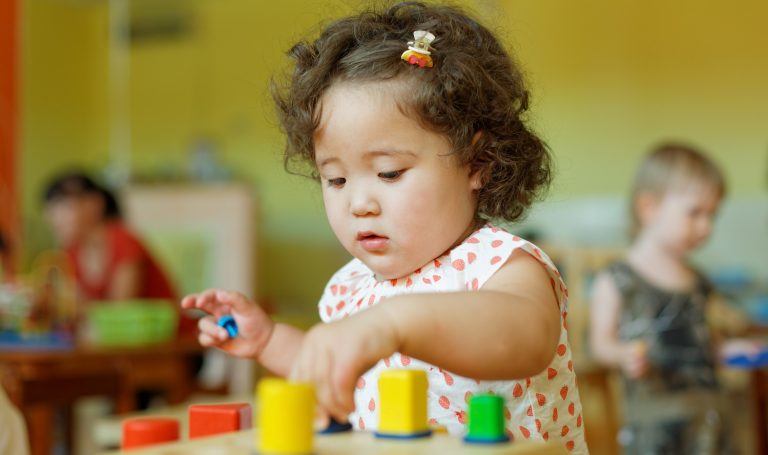Children throwing tantrums is a common sight. It’s a normal part of child development. Still, as a parent, it would be great if it doesn’t happen in the most embarrassing times, like at a church service, a family dinner, or a school activity.
Nonetheless, it’s your job as a parent to help your children navigate their emotions and develop healthy ways to manage them. Understanding and managing emotions is an integral part of healthy development. Plus, it allows kids to build resilience, form positive relationships, and lead fulfilling lives.
Kids can’t do this on their own. They need support and guidance from others as their young minds struggle to process this independently. And by others, they primarily mean ‘you.’
If you’re looking to help your child with emotional regulation, you should explore strategies like using play based childhood education. In the meantime, here are some things you can start doing right now to help them achieve it.
In This Article
1. Encourage Physical Activity
It does wonders not only for your kid’s physical but emotional well-being, as well. This is because it provides a great avenue for releasing energy, reducing stress, and stimulating the mind and imagination.
There are many ways to make your child more active. These include:
- Lead by example: You are your kid’s main model for behavior. So, you can encourage them to be active by pursuing physical activities yourself.
- Make it fun: Children are more likely to be active if they enjoy themselves. Encourage your children to pick an activity they enjoy, such as sports, dancing, or playing outdoors.
- Encourage variety: Some kids get bored with the same activities. So, don’t hesitate to introduce them to new activities and mix up their daily routine.
- Get the whole family involved: Encourage the entire family to be active together. This can be a great bonding experience and make physical activity more enjoyable for your children.
2. Model Healthy Emotion Management
Children learn by watching the adults around them. So, you have to model healthy emotional management if you want them to do the same. This means being conscious of your own emotions and how you act on them.
As a parent, it’s natural to experience a range of emotions, and it’s crucial to allow yourself to feel and express them healthily. This can include talking about your feelings with a friend or loved one, writing in a journal, or doing something to decompress, like yoga or meditation.
Your kids need to see you use healthy coping skills. So, when you’re feeling overwhelmed or upset, try taking a deep breath or going for a walk. Simple things like these help you release tension without doing anything drastic.
You should also show them how to do self-care. Taking care of yourself is an essential part of emotional management. Set aside time for activities that nourish your mind, body, and spirit, such as getting enough sleep, eating a healthy diet, and doing things you enjoy.
Kids are like sponges. They absorb everything they see and hear around them. When your kids see you do all these things, it shows them the skills they need to navigate their own emotions and lead healthy, fulfilling lives.

3. Encourage Verbal Expression
Encouraging verbal expression is integral to helping children understand and manage their emotions. It’s essential to allow children to articulate what they feel instead of suppressing them.
Here are some ways to help your child talk about their feelings:
- Validate their emotions: It’s vital to validate children’s emotions, even if you don’t understand or agree with them. This can include saying things like ‘I can see that you’re feeling angry’ or ‘It sounds like you’re feeling sad.’
- Encourage them to talk about their feelings: Let your kid talk openly about what they feel and why they feel that way. Ask open-ended questions and listen actively to what they have to say.
- Use feeling words: Teach your kid to assign words to their emotions. This will help them discern feelings like happiness, sadness, anger, and fear, as well as more complex emotions like excitement, frustration, and embarrassment.
- Create an open and supportive environment: Children are more likely to express their emotions if they feel safe and supported. So, create a non-judgmental atmosphere where they can say what they feel without fear of punishment or retaliation.
- Seek professional help if needed: If your child is struggling to express their emotions, seek the help of a mental health professional. A therapist or counselor can work with your child to help them address emotional issues.
4. Practice Deep Breathing
Deep breathing is a simple yet effective way to help children manage their emotions. You can teach them deep breathing techniques, such as belly breathing or 4-7-8 breathing. Then, let them practice these techniques whenever they feel overwhelmed or upset.
5. Use Role-Playing
Role-playing can be a fun and interactive way to help children practice managing their emotions. You can act out different scenarios with your children and encourage them to try out different ways of expressing what they feel.
Healthy Emotions, Healthy Development, Healthy Living
Helping children manage their emotions is an essential aspect of parenting. By modeling healthy emotion management behaviors, encouraging verbal expression, and using role-playing, you can support your children as they develop healthy coping skills and self-regulate. Remember, emotion management is a skill children develop with practice. So, be patient and supportive as you go.











